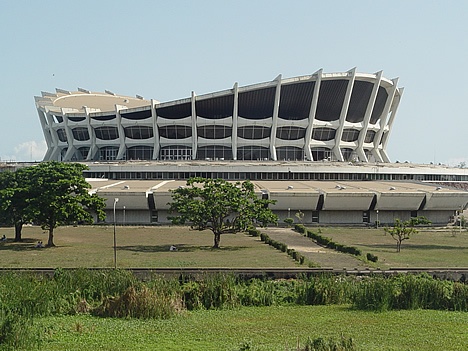
Theater in Nigeria have had a long, slow but steady growth over the years, before the existence of contemporary theater, audience have been entertained right from the 14th century in Oyo kingdom with the help of masquerades, festivals, and storytelling. Different cultural group practiced the traditional theater as a means of socializing and entertainment in the olden days. The theatrical traditions of the northern Hausa, still practiced today, include the performances by traditional masquerades, Puppet theater, acrobatics, dancing, and music.
The Yoruba people have had greater development in this aspect as they are seen as the fore runner for modern theater in Nigeria. Hubert Ogunde is considered the father of modern Yoruba folk opera, he created the genre by combining music, dance, and mime. In 1945 he founded a professional theatrical group to perform his own plays, including Tiger’s Empire (1946), an attack on colonialism. Other notable Yoruba theater troupes were founded by Duro Ladipo, whose work explored aspects of Yoruba myth and history, and Moses Playa Ademujo, known for comedies that parody social pretensions. Today several professional theater companies thrive in Lagos, Ibadan, and other major cities.
Additionally, many performances reach audiences via television, in English as well as in the leading Nigerian languages. Other great story tellers like, Wole Soyinka, JP Clark, Ola Rotimi and so on were great with the stories they were telling, issues of societal significant affecting the country at a time.
Even though Film making in Nigeria wasn’t as developed as other parts of the globe, due to poor funding and distribution, television was a major tool for story telling in Nigeria, One of the best-known Nigerian films is Oladele’s ‘Kongis’ Harvest’ – 1971, a political drama about an African dictator’s abuse of power, all these had a long but gradual growth. Over the years so much effort have been put into both theater and into the film industry, storytelling have taken a different turn with the age of technology and exposure gained, Nigeria has a massive growth with theater production with the presence of events like the Lagos Theater Festival among others giving opportunities to storytellers to showcase their talent in Nigeria and beyond in other parts of the world, this has reshaped theater in Nigeria.
The increased collaboration between Nigeria and Ghana from the mid-2000s led to the resurgence of Ghana’s film industry and also massive growth for films in Nigeria. However, many Ghanaian productions are copyrighted to Nollywood and distributed by Nigerian marketers due to Nigeria’s bigger market. In the Western region, viewers often confuse Ghanaian movies to be Nigerian movies just because these films has attained a major height in Nigeria
